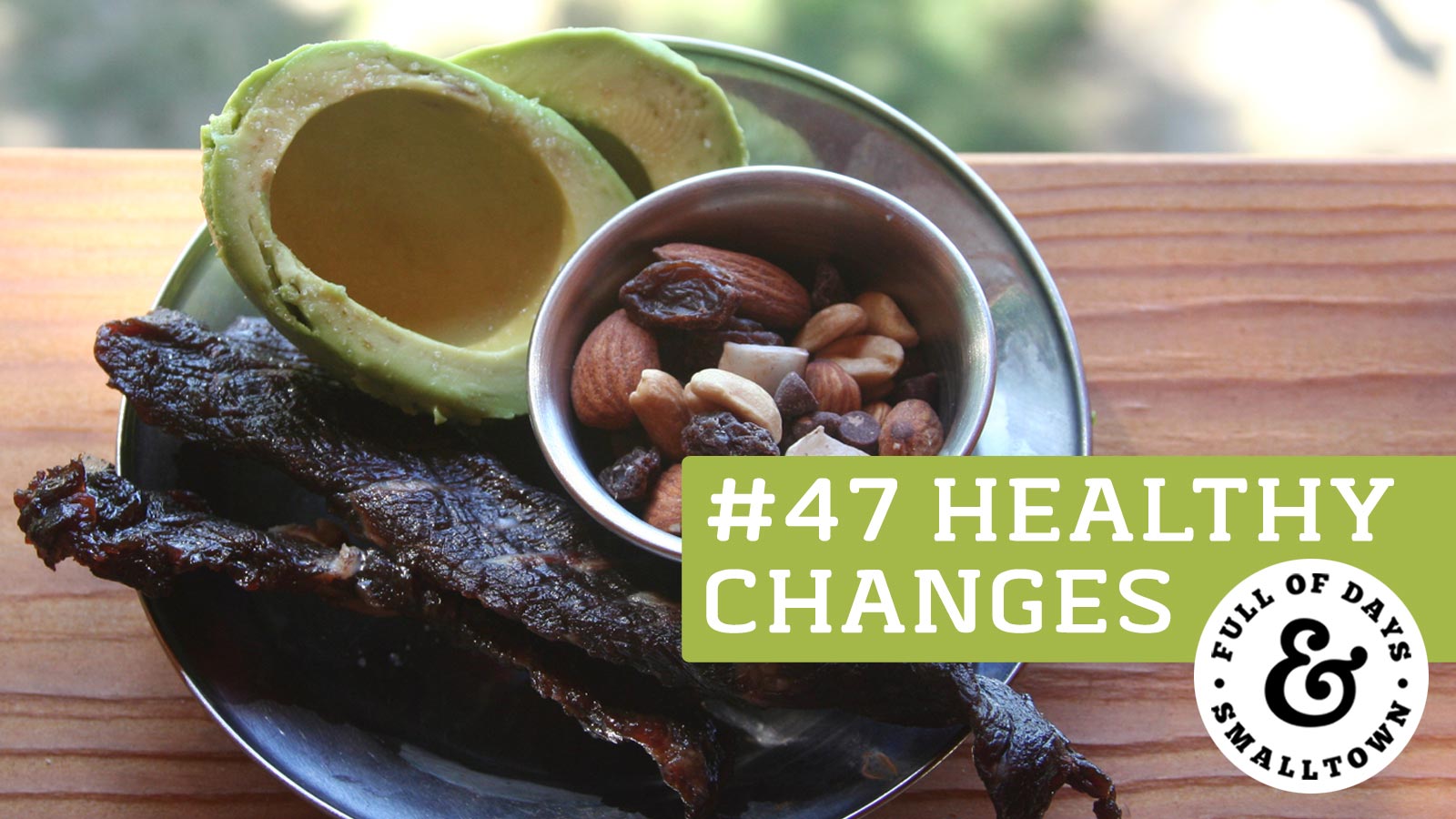
s we’re nearing the end of the year, it’s important that we keep that steely eyed focus we had back in the new year. If you’re like me, your resolve can waver during these cold, dark months that are surrounded with joy, love, holidays and COOKIES! But we’re choosing to remember our “why”, right?
For us, we revisit our Traditional Diet Guidelines often, and felt them worth sharing again as they may help some of you going into the New Year. These are the basic guidelines of a traditional diet based on the findings of Dr. Weston A. Price, and for our family, this diet works extremely well for keeping us healthy.
(If you’re one of the millions who have gut issues, allergies or sensitivities to certain food groups it’s my recommendation to seek out information that specializes in your specific needs.)
Traditional Diet Guidelines: (follow links for additional information)
- Eat whole, unprocessed foods.
- Eat beef, lamb, wild game, organ meats, poultry and eggs from pasture-fed animals.
- Eat wild fish (not farm-raised), fish eggs and shellfish from unpolluted waters.
- Eat full-fat milk products from pasture-fed cows, preferably raw and/or fermented, such as raw milk, whole yogurt (not low-fat), milk kefir, cultured butter, full-fat raw cheeses and fresh and sour cream.
- Use animal fats, such as lard, tallow, egg yolks, cream and butter liberally (3-4 tablespoons daily).
- Use only traditional vegetable oils – extra virgin olive oil, expeller-pressed sesame oil, small amounts of expeller-pressed flax oil, and the tropic oils – coconut oil, palm oil and palm kernel oil.
- Take cod liver oil regularly to provide at least 10,000 IU vitamin A and 1,000 IU vitamin D per day (or at very least, 3 times per week).
- Eat fresh and cooked vegetables, preferably organic. Use vegetables in salads and soups, or lightly steamed with butter.
- Use whole grains, legumes and nuts that have been prepared by soaking, sprouting or sour leavening to neutralize phytic acid, enzyme inhibitors and other anti-nutrients (we love traditional sourdough bread).
- Include enzyme-rich lacto-fermented vegetables, fruits, beverages and condiments in your diet on a regular basis (such as kombucha, water kefir and kimchi).
- Prepare homemade stocks from the bones of chicken, beef, lamb and fish and use liberally in soups, stews, gravies and sauces. We aim to consume stock 3 times a week, although daily is ideal. You can even warm it up and drink it from a mug!
- Use filtered water for cooking and drinking (to avoid chemicals like chlorine and fluoride).
- Use unrefined salt and a variety of herbs and spices for added minerals.
- Make your own salad dressing using raw vinegar, extra virgin olive oil and a small amount of expeller-expressed flax oil (or even sauerkraut juice for extra probiotics!).
- Use traditional sweeteners in moderation, such as raw honey, maple syrup, maple sugar, date sugar, dehydrated cane sugar juice (sold as Rapadura) and stevia powder (our goal is to limit sugar intake to once or twice a week so it is truly a “treat”…it’s our goal!).
- Cook only in stainless steel, cast iron, glass or good quality enamel. Transition away from non-stick cookware, aluminum foil and plastic storage containers to avoid unnecessary exposure to toxins.
- Use only natural, food-based supplements (never use denatured protein powders, synthetic vitamins or supplements).
- Get plenty of sleep, exercise and natural sunlight. Aim for exercise 5-6 days a week, and avoid artificial light 2 hours before bedtime (to help promote the natural production of melatonin).
Again, these are not monitored by an ironclad fist, but rather they help guide us while we’re meal planning, grocery shopping and cooking. They even come in handy while eating out and options are limited. Familiarize yourself with these guidelines and then start working toward your goal, a little bit every day.



This is definitely a helpful reminder to steer clear of the junk that is all around us this time of year. I stick to a similar diet but there are several things I haven’t added yet, that I will after reading this. For example, I don’t always soak my grains and legumes before using them. I didn’t realize that it neutralizes acids. Very interesting! Lots to learn 🙂
So glad this was helpful! Yes, the more you learn, the more you realize there is to learn! Soaking grains can be pretty easy to add in, it just takes planning ahead!
Thanks for these tips. It is always best to choose our food wisely. I will copy these tips, print it and put in a place where I can always see it. It would be my reminder to take better care of my health and that of my family
That’s a great idea Bonnie! There are so many things we can do to take better care of ourselves, sometimes that gets overwhelming, so having a list visible is a fantastic plan!